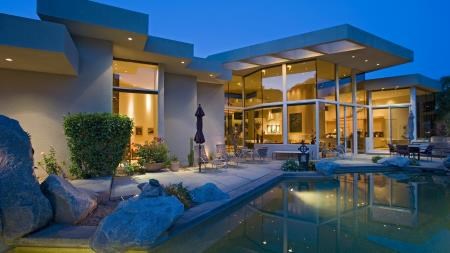What luxury buyers are looking for in a home
It’s often said that the luxury market sets the trends that the broader market will follow. High net worth individuals are typically the first to adopt cutting-edge designs and innovative technologies in their homes, serving as early adopters of what will eventually become more widely accessible.
Adrian Goslett, regional director and CEO of RE/MAX of Southern Africa explains that as these trends gain popularity and become more affordable, they gradually filter down to the mass market, transforming the way everyday individuals think about and design their own homes.
“From smart home systems to eco-friendly features, these innovations often carry a higher price tag initially, making them exclusive to luxury buyers. However, in time, the trickle-down effect not only influences the housing sector but also shapes broader consumer expectations across various industries,” he explains.
Luxury buyer preferences
To help shed light on what is currently popular within the luxury housing market, Karryn Cartoulis of RE/MAX Living explains that “luxury buyers’ preferences have evolved over the past few years to include a preference towards double glazed glass for doors and windows to help minimize the effects of harsher weather patterns which stem from climate change. They also prefer to have their own power and water supply and to be fully automated.”

Smart home technology and security systems with onsite and offsite monitoring are also highly sought-after in her markets within Cape Town. “Buyers like a property to have cameras as well as Bluetooth beams and electric fencing,” says Cartoulis.
She adds that the outdoor amenities most sought-after by luxury buyers include “an indoor entertainment area that flows onto the outdoors with a north / north-west-facing aspect and uninterrupted views, swimming pool, outdoor kitchen and bar area, landscaped garden, and also privacy,” says Cartoulis.
Key features luxury buyers prioritize
Other key features luxury buyers prioritize when searching for a property include an easy flow layout, large spaces, high ceilings, excellent entertainment area, high-end finishes, elevator access, gym, wine cellar, and separate staff accommodation.
Cartoulis’ advice to sellers looking to attract luxury buyers is to do some work on the home before going to market. “Fix all the aesthetic imperfections, have all your services up to date, and allow your home to show off at its very best so it can sell itself,” she notes.
“The luxury market has been very buoyant in Cape Town over the last few years. Many international clients are purchasing villas on the Atlantic seaboard due to all that Cape Town has to offer in terms of lifestyle. The favorable exchange rate and the short-term annual rental yields are also very attractive to foreign investors in this market,” says Cartoulis.
Investment potential in luxury homes
Even outside of the Western Cape, Goslett explains that the South African housing market remains an appealing investment market for both local and international buyers, especially now that the economic outlook has improved following the formation of the GNU.

“While luxury buyers often prioritize lifestyle and aesthetics, they also have a keen eye on the long-term potential of their investment. High-end homes are not just places to live but assets that can appreciate in value over time. Partnering with an experienced real estate agent is essential in helping luxury buyers navigate the market and identify properties that offer the best potential for return on investment. A skilled agent not only understands the unique preferences of affluent buyers but also has the market insight needed to pinpoint opportunities that align with both personal desires and financial goals,” he concludes.





